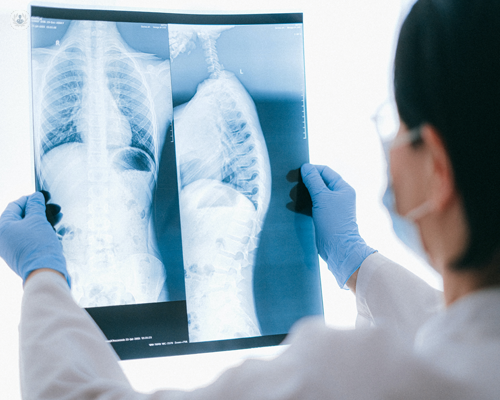Does COVID-19 have a permanent effect on the lungs?
Escrito por:It’s no surprise that people may want to know all about the after effects of COVID-19 on the lungs, especially when considering its initial status as a dangerous respiratory illness with unknown qualities.
Here to provide a reassuring take on the side effects of COVID-19 on the lungs, and just how acute the symptoms are, is leading specialist in pulmonary and respiratory medicine, Dr Grace Robinson.

Are the effects of COVID-19 on the lungs long-lasting or permanent? What are the most common effects?
The side effects of COVID on the lungs can be quite variable. However, most people do not suffer long-term effects.
Even in those people who were very critically ill with COVID pneumonia (such as being in the intensive care unit on a ventilator), only very small percentage of individuals seem to have persisting, long-lasting lung damage and in most people, this is due to lung scarring (fibrosis). But this is a rare side effect.
In the vast majority of people this causes breathlessness; some will have a cough.
Of course, it is important to make sure that any lung symptoms attributed to COVID are indeed due to COVID, and not due to another more common cause of cough or breathlessness.
A proportion of people with Long COVID also describe having significant breathlessness. In a proportion of people this can be due to a condition called breathing pattern disorder. This is where the brains' control of breathing seems to be a bit out of sync and causes disproportionate breathlessness.
Often, specialist respiratory physiotherapy breathing retraining can help with this and in the vast majority of cases, it will get better.
Is this damage reversible?
In only a very small proportion of individuals, most commonly those who have been severely unwell with COVID, have irreversible lung damage and the vast majority of people recover completely.
What can people do to aid their long-term recovery from COVID-19?
In most people there is nothing specific that can be done to aid long-term recovery from COVID. Time is usually a good healer - and it can take a while.
Usual general health measures are, of course, important. These include:
Keeping fit and active;
Maintaining a normal weight, and;
Not smoking.
When should you see a doctor about persistent respiratory symptoms following recovery from COVID-19?
I think it would be sensible to see a specialist if you have persistent respiratory symptoms following COVID infection, particularly if symptoms persist after about three months. In the first instance, we would usually recommend a chest X-ray and some breathing tests, alongside a careful assessment of what the breathing problem is likely to be due to.
Are those in recovery from COVID-19 more susceptible to developing other conditions or complications going forward?
I don’t think this should be a concern for people, but of course there’s still a lot we don’t understand about how COVID affects the body, and recovery can take weeks or months in some individuals.
What are the latest developments in this area?
There’s lots of ongoing research in this area, and still a lot that we still do not fully understand.
Local studies in Oxford, using a special type of scan called a Xenon MRI scan to understand the mechanism of breathlessness post COVID.
There’s also some interest as to whether the blood supply to the lungs is disrupted.
If you have concerns regarding long-term effects of COVID-19 or other respiratory issues, arrange an expert consultation with Dr Robinson via her Top Doctors profile.


